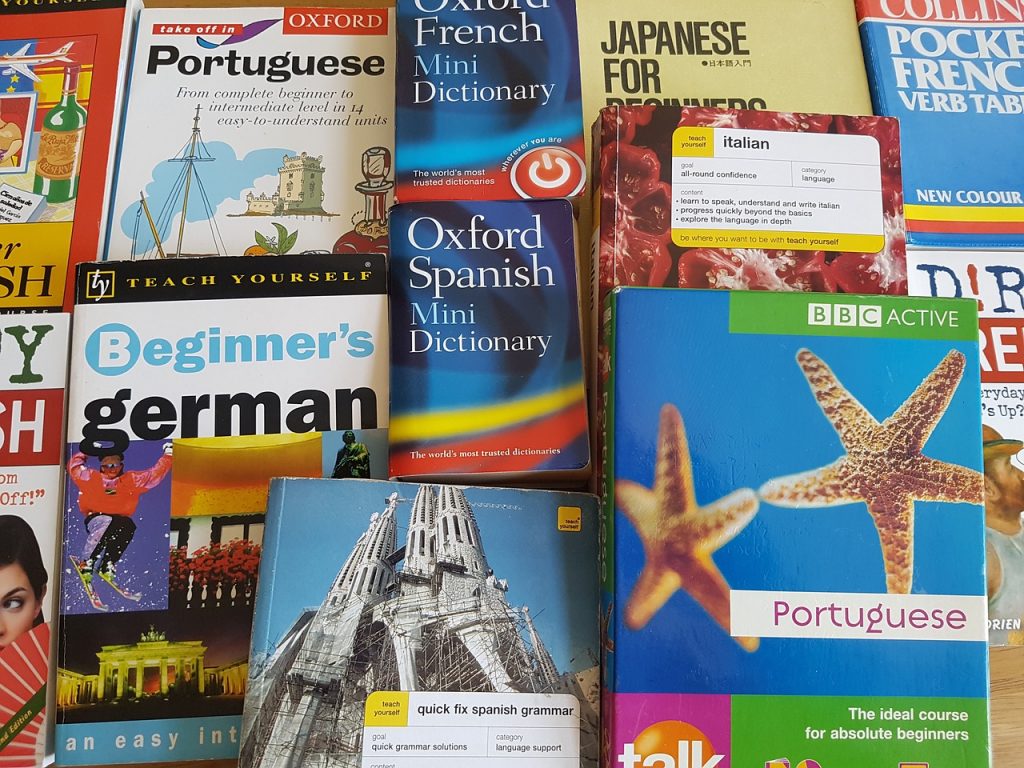 The first pop-up language museum opens its doors this week in an attempt to spark greater enthusiasm for foreign language study. Pop-Up World of Languages is a project of the Arts and Humanities Research Council, spearheaded by Professor Wendy Ayres-Bennett from Cambridge University and other linguists from Nottingham, Edinburgh and Belfast. Professor Ayres-Bennet hopes the language museum will help to ignite the interest of young learners and highlight the importance of learning foreign languages in schools.
The first pop-up language museum opens its doors this week in an attempt to spark greater enthusiasm for foreign language study. Pop-Up World of Languages is a project of the Arts and Humanities Research Council, spearheaded by Professor Wendy Ayres-Bennett from Cambridge University and other linguists from Nottingham, Edinburgh and Belfast. Professor Ayres-Bennet hopes the language museum will help to ignite the interest of young learners and highlight the importance of learning foreign languages in schools.
The pop-up museum of languages is part of a nation-wide attempt to push foreign languages into the spotlight and encourage everyone to view them as important school subjects. Academics are keen for the study of modern foreign languages to be taken as seriously as the study of English and mathematics at school.
The number of students studying French at GCSE level has halved in the last 15 years. This is partly due to the change in the curriculum, which stopped foreign language study being compulsory at GCSE.
Another worrying sign in the decline of languages is the closure of university foreign languages departments and the growing lack of suitable teachers in schools.
Pop-Up Language Museum to travel around the UK
The new language museum will operate in The Grafton Centre shopping centre in Cambridge before moving to other locations around the UK. This will allow it to connect with young people and encourage them to view foreign languages as interesting, exciting and worthy of study.
Wendy Ayres-Bennett, Professor of French philology and linguistics at Cambridge University, wants foreign language study to be accepted as a regular subject and not elitist. She said: “More people in the world are bilingual than are not, and the idea that learning languages is too difficult or elitist is just ‘cultural baggage’ which needs to be shaken off.”
Long-term, the academics involved hope that with initiatives such as the language museum, schools in the UK will experience an increased uptake in language study at GCSE and A Level.
What’s inside the Language Museum?
The Pop-Up World of Languages language museum is contained within a glass box and is easily transportable, which means it will travel to different public spaces around Britain.
Inside the glass box you will find games, quizzes, films and fun interactive events that will educate visitors about other languages. It will also feature an Alice in Language Wonderland adventure, a Lost in Translation word challenge, and a Mr Tickle accent-spotting game, featuring the classic character from the Mr Men children’s books.
Other fun activities inside the language museum that will appeal to children include a language pool where children are encouraged to fish for creatures carrying English words borrowed from foreign languages (like ‘pyjamas’, ‘bungalow’ and ‘karaoke’).
The three zones inside the Pop-Up World of Languages museum include: ‘Languages and Me’, which looks at our personal interaction with languages and how they help us; ‘Languages Around Me’ which considers different accents, translations and multi-lingual cities; and ‘Languages in the World’, which looks at endangered languages and different language sounds and writing systems.
The importance of languages for international diplomacy
The World of Languages museum of languages highlights other issues in the world of foreign languages and communications.
Language translation apps, such as Google Translate, are often inadequate due to problems with offensive languages and inconsistencies.
Professor Ayres-Bennet said: “The UK desperately needs languages for diplomacy, trade, conflict resilience and social cohesion. We’re trying to work with the whole education system, from primary school to get them young and enthusiastic. We need a pipeline.”
It is hoped the language museum will become that pipeline that will bring foreign languages to the forefront of public awareness and engage all ages with the exciting, fulfilling and essential study of languages.
How to visit the Pop Up World of Languages museum
After staying Cambridge until 27th October, the pop-up language museum will travel to Belfast, Nottingham, Edinburgh and London. There are then plans for the museum to visit other cities throughout the UK.
The World of Languages museum is a chance for young people, children and families to explore the fun world of languages and gain a deeper understanding of how useful and beneficial language study is to us all.
Share your thoughts
Have you visited the language museum or a similar place/event?
Do you think the pop-up museum of languages is effective in encouraging young learners?
Should foreign languages be compulsory in school? From what age?
Let us know your thoughts in the comments!


